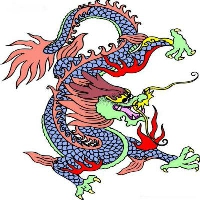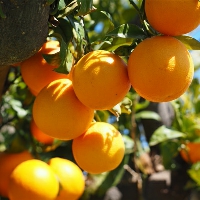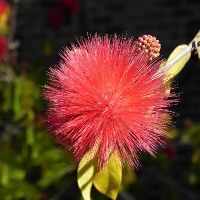一项新理论提出,远古人类可能在74000年前的超级火山爆发所引发的“火山冬季”中幸存下来
Ancient Humans Likely Survived "Volcanic Winter" Spurred By Super Eruption 74,000 Years Ago, New Theory Proposes
一项新理论提出,远古人类可能在74000年前的超级火山爆发所引发的“火山冬季”中幸存下来
Some 74,000 years ago, a volcanic super-eruption 5,000 times larger than Mount St. Helens spurred a “volcanic winter” that lasted up to a decade, resulting in a millennia-long cooling event across the planet that wiped out early human species and mammals alike.
大约7万4千年前,一次比圣海伦斯火山大5000倍的火山超级喷发引发了长达10年的“火山冬季”,导致地球上数千年的降温事件,使早期人类物种和哺乳动物都灭绝了。
Or so the theory went.
至少理论上是这样的。
Now, new evidence presented in Nature Communications suggests that while the Toba Volcano eruption was one of the largest events to occur over the last 2 million years, it may not have wiped out early humans but instead proved the species to be adaptable and ingenious in times of climate catastrophe.
现在,《自然通讯》杂志提出的新证据表明,虽然多巴火山喷发是过去200万年中发生的最大事件之一,它可能没有消灭了早期人类,而是证明了物种适应性和巧妙的气候灾难。
Previous theories suggest that the volcanic eruption decimated early human populations, nearly forcing the extinction of humans. Under this theory, the few Homo sapiens that survived in Africa during this time developed social, symbolic, and economic strategies that enabled them to re-expand to Asia 14,000 years after the eruption. New work contradicts such theories, suggesting that humans in India were resilient to the volcano eruption – even though they ultimately died off later and did not contribute to modern gene pools.
先前的理论认为,火山爆发摧毁了早期人类的数量,几乎迫使人类灭绝。根据这一理论,在这一时期幸存于非洲的少数智人发展了社会、象征和经济战略,使他们能够在火山喷发1.4万年后重新扩张到亚洲。新的研究结果与这些理论相矛盾,表明印度的人类对火山爆发有很强的适应能力——尽管他们后来最终灭绝了,也没有对现代基因库做出贡献。
"The archaeological record demonstrates that although humans sometimes show a remarkable level of resilience to challenges, it is also clear that people did not necessarily always prosper over the long term,” said Professor Michael Petraglia, of the Max Planck Institute, in a statement.
马克斯·普朗克研究所的迈克尔·佩特拉格利亚教授在一份声明中说:“考古记录表明,尽管人类有时表现出非凡的抗挑战能力,但很明显,从长远来看,人类不一定总是繁荣昌盛。”
Archaeologists at the Dhaba site in central India dated 13 sediment samples spanning an 80,000 year-long stratigraphic record from the Dhaba site in northern India’s Middle Son Valley, as well as found a rich collection of artifacts over a timeframe of 55,000 years surrounding the volcanic eruption. Stone tools discovered near the Toba eruption represent those from the African Middle Stone Age and some of the earliest artifacts from Australia, which suggests strong evidence that Middle Paleolithic tool-using populations were present in India before and after the eruption, filling a “major chronological gap” in human records.
考古学家在印度中部的达巴遗址发现了13个沉积物样本,这些样本覆盖了印度北部中森谷达巴遗址长达8万年的地层记录,并在火山喷发前后的5.5万年时间里发现了丰富的人工制品。在多巴火山喷发附近发现的石器代表了非洲中石器时代的石器,以及一些来自澳大利亚的最早的手工艺品,这有力地证明了旧石器时代中期使用石器的人群在火山喷发前后存在于印度,填补了人类记录中“主要的年代空白”。
Stone tools found at the Dhaba site corresponding with the Toba volcanic super-eruption levels. Pictured here are diagnostic Middle Palaeolithic core types. Chris Clarkson
"Populations at Dhaba were using stone tools that were similar to the toolkits being used by Homo sapiens in Africa at the same time. The fact that these toolkits did not disappear at the time of the Toba super-eruption or change dramatically soon after indicates that human populations survived the so-called catastrophe and continued to create tools to modify their environments,” said lead author Professor Chris Clarkson of the University of Queensland.
“达巴的居民使用石器,类似于同一时期非洲智人使用的工具包。事实上,这些工具包在多巴超级喷发时并没有消失,也没有在不久后发生巨大变化,这表明人类在所谓的灾难中幸存了下来,并继续创造工具来改变他们的环境,”昆士兰大学的首席作者克里斯·克拉克森教授说。
Sediment analyses also suggest that the Earth’s cooling event following the Toba eruption may have been less extreme than previously hypothesized and may not have actually caused the glacial period that followed. The work supports the hypothesis that human populations were present in India 80,000 years ago and likely survived one of the largest volcanic eruptions in the last 2 million years.
沉积物分析还表明,多巴火山喷发后的地球降温事件可能没有之前假设的那么极端,也可能不是导致随后冰川时期的真正原因。这项研究支持了这样一种假设,即8万年前印度就有人类,而且很可能在过去200万年最大的一次火山爆发中幸存下来。
India is a “critical geographic crosswords” for understanding how early Homo sapiens dispersed out of Africa, into Asia and beyond. Fossil evidence from the study suggests that humans migrated out of Africa and expanded across Eurasia and interbred with ancient humans, like Neanderthals, before the end of the cooling event 60,000 years ago.
印度是一个“关键的地理填字游戏”,用来理解早期智人是如何从非洲分散到亚洲和其他地方的。来自该研究的化石证据表明,在6万年前的降温事件结束之前,人类走出非洲,向欧亚大陆扩张,并与尼安德特人等古人类杂交。
Image shows the Dhaba site overlooking the Middle Son Valley, India. The archaeological trench is located on the left side of the photo. Christina Neudorf
 自飘林 2022-09-27 15:37:50
自飘林 2022-09-27 15:37:50









